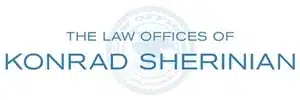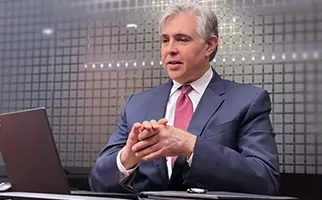Counterfeit Trademark Lawyer
Trademarks
Overview of Counterfeiting
Counterfeiting is a pervasive issue that plagues businesses and individuals worldwide. While it has a specific meaning within US law; i.e., the exact replication of a federally registered trademark on a product for which the trademark was registered, it often generally refers to the unlawful act of replicating or imitating products, brands, or intellectual property, often with the intention of deceiving consumers, generating illicit profits, and damaging the reputation of genuine brands. This practice affects a wide range of industries, from fashion and electronics to pharmaceuticals and luxury goods.
Counterfeit products can take many forms, including fake designer handbags, counterfeit medications, imitation automotive parts, and pirated software. They often bear a striking resemblance to the authentic counterparts, making it challenging for consumers to discern the difference.
The global proliferation of counterfeiting poses a significant threat to businesses and consumers alike. It not only results in substantial financial losses for legitimate companies but also endangers consumer safety, as counterfeit products may lack quality control and meet lower safety standards. Therefore, combating counterfeiting is paramount for protecting both businesses and consumers.
Importance of Legal Representation
In the battle against counterfeiting, having experienced legal representation is a crucial asset. Counterfeiters are known to employ sophisticated tactics to avoid detection and prosecution. To effectively combat this illicit trade and protect your brand, intellectual property, and bottom line, you need a skilled and dedicated counterfeiting lawyer by your side.
At The Law Offices Of Konrad Sherinian, LLC, we understand the complexities of counterfeiting cases and the critical importance of legal representation. Our team of legal experts specializes in navigating the intricate web of counterfeit operations, counterfeit products litigation, trademark protection, and counterfeit brand enforcement. With our extensive experience in the field, we have successfully secured favorable outcomes for numerous clients, ensuring that their intellectual property and brands remain safeguarded.
Why Choose The Law Offices Of Konrad Sherinian, LLC
At The Law Offices Of Konrad Sherinian, LLC, we recognize that selecting the right legal representation for counterfeiting cases is a crucial decision. Here’s why you should choose us:
Expertise in Counterfeiting Cases
Our team boasts a wealth of expertise in handling a wide spectrum of counterfeiting cases. We understand the nuances and intricacies of counterfeiting laws and regulations, ensuring that you receive the highest level of guidance and legal support. Whether you’re dealing with counterfeit products, trademark infringement, or intellectual property issues, our team of experts is well-equipped to navigate the legal landscape and provide you with tailored solutions.
Proven Success in Counterfeit Brand Enforcement
Our track record speaks for itself. With numerous successful cases in counterfeit brand enforcement, we have consistently delivered favorable outcomes for our clients. We’ve taken swift and decisive action against counterfeiters, ensuring that their illicit operations are halted and damages are recovered. Our commitment to safeguarding your brand’s integrity is unwavering, and our results demonstrate our dedication to this cause.
Personalized Approach to Counterfeit Protection
Every counterfeiting case is unique, and we understand that a one-size-fits-all approach does not suffice. That’s why we take a personalized approach to counterfeit protection. We work closely with you to understand your specific concerns and goals, tailoring our strategies to meet your individual needs. Your brand, intellectual property, and reputation are in good hands with our customized legal solutions.
Intellectual Property Protection
Your intellectual property is among your most valuable assets. We are dedicated to preserving and protecting your intellectual property rights. Whether it involves trademarks, patents, or copyrights, we have the knowledge and experience to ensure that your intellectual property remains shielded from counterfeiters and infringement.
Dedicated Advocacy Against Counterfeiting
When you choose The Law Offices of Konrad Sherinian, LLC, you gain a dedicated advocate in the fight against counterfeiting. We are passionate about pursuing legal action against counterfeiters and helping you recover damages. Our relentless commitment to your cause ensures that your interests are fiercely represented throughout the legal process.
With our expertise, proven success, personalized approach, commitment to intellectual property protection, and unwavering dedication to advocacy against counterfeiting, The Law Offices of Konrad Sherinian, LLC stands as your trusted partner in countering the threats posed by counterfeiters. In the following sections, we will delve into the range of counterfeiting services we offer and real case studies that showcase our capabilities in greater detail.
Our Counterfeiting Services
At The Law Offices Of Konrad Sherinian, LLC, our comprehensive range of counterfeiting services is designed to address every aspect of your legal needs in this complex field. We take pride in offering a diverse set of solutions that are tailored to protect your interests effectively.
Counterfeit Products Litigation
Our team of experienced attorneys is well-versed in counterfeit products litigation. We understand the intricate legal procedures involved in tackling counterfeit product manufacturers and distributors. When counterfeiters threaten your brand and bottom line, we have the expertise to pursue legal action swiftly and effectively. Our goal is to not only stop the counterfeit operation but also secure the damages you rightfully deserve.
Trademark Protection and Enforcement
Trademark protection is paramount in the fight against counterfeiting. Our firm specializes in providing comprehensive trademark protection and enforcement services. We take proactive measures to ensure that your brand remains safeguarded from counterfeiters seeking to infringe upon your trademarks. Our vigilant approach and dedication to preserving your brand’s integrity are the cornerstones of our trademark protection services.
Intellectual Property Enforcement
Preserving your intellectual property rights is a fundamental aspect of our practice. Our team is committed to enforcing your intellectual property rights, whether they involve copyrights, patents, or trademarks. We work tirelessly to protect your assets from those who seek to infringe upon your intellectual property, ensuring that your creations and innovations are respected and defended.
Customized Anti-Counterfeiting Strategies
No two counterfeiting cases are identical, and that’s why we offer customized anti-counterfeiting strategies. We understand that each client’s concerns and objectives are unique. Our team collaborates closely with you to develop tailored strategies that address your specific challenges. These strategies encompass a wide array of tactics, from detection and prevention to legal action. Our goal is to provide you with the most effective and personalized approach to counterfeiting protection.
By choosing The Law Offices of Konrad Sherinian, LLC, you gain access to a comprehensive suite of counterfeiting services. Whether you’re dealing with counterfeit products, trademark infringement, intellectual property issues, or require customized anti-counterfeiting strategies, our team is here to serve as your trusted partner. We’re committed to helping you combat counterfeiting effectively and protecting what matters most to you. In the following section, we will delve into real case studies that showcase our capabilities in addressing counterfeiting challenges.
What Is Counterfeiting?
Under US law, counterfeit goods are defined in 15 U.S.C. 1116 and specifically refer to trafficking in products that bear a false replica of a registered US mark on a product for which the mark is registered. However, counterfeiting more generally refers to unlawful practice of replicating or imitating products, brands, or intellectual property with the intent to deceive consumers, generate illicit profits,
and undermine the reputation of legitimate brands. Under this broader definition, it can refer to types of trademark infringement, copyright infringement, and design patent infringement. In all cases, counterfeit products are often designed to closely resemble genuine products, making it difficult for consumers to distinguish between the two. Counterfeit items can span various industries, including fashion, electronics, pharmaceuticals, automotive, and luxury goods.
Counterfeit products can encompass a wide range of items, from fake designer apparel and accessories to counterfeit medications, imitation automotive parts, and pirated software. They are produced and distributed without proper authorization from the genuine brand or intellectual property owner.
Counterfeiting vs. Trademark Infringement
While counterfeiting and trademark infringement share similarities, they are distinct legal concepts. Trademark infringement occurs when a party uses a trademark that is similar or identical to a registered trademark, leading to consumer confusion. It may involve the unauthorized use of a trademark in commerce, such as in advertising, packaging, or promotion.
Counterfeiting, on the other hand, goes beyond mere infringement. It involves the creation and distribution of counterfeit goods that mimic the exact appearance of a registered trademark on a product that the trademark was registered for. Counterfeiters often engage in this practice with the primary aim of deceiving consumers into believing they are purchasing authentic products.
Legal Implications and Penalty for Counterfeiting
Counterfeiting is a serious offense with significant legal implications and penalties. Those found guilty of counterfeiting may face severe consequences, including civil and criminal penalties. Legal repercussions for counterfeiting can include:
Civil Lawsuits: Brand owners can file civil lawsuits against counterfeiters to seek damages and injunctive relief. This may involve recovering monetary compensation for lost sales, reputational damage, statutory damage that can range into the millions of dollars, and legal costs.
Criminal Charges: Counterfeiters can be subject to criminal charges, leading to fines and imprisonment. Law enforcement agencies actively pursue and prosecute those involved in large-scale counterfeiting operations.
Seizure of Assets: Government agencies and law enforcement can seize counterfeit goods and assets obtained through counterfeiting. This includes seizing bank accounts, property, and assets tied to the counterfeit operation.
Loss of Reputation: Counterfeiters risk damaging the reputation and brand image of the actual brand. Once exposed, consumers may lose trust in the brand’s products or services, leading to long-term consequences for the business.
It is crucial to understand that counterfeiting is a violation of intellectual property rights and is both ethically and legally unacceptable. To protect your brand and intellectual property from counterfeiters and navigate the legal complexities of counterfeiting cases, it is essential to seek the guidance and representation of experienced legal professionals.
Counterfeit Brand Enforcement
Strategies for Brand Protection
Effective brand protection is paramount in the battle against counterfeiting. Safeguarding your brand involves a multi-faceted approach that encompasses several key strategies:
- Trademark Registration: Ensure your trademarks are legally registered. This provides a strong legal foundation for protecting your brand and taking action against counterfeiters.
- Intellectual Property Monitoring: Regularly monitor the market for any signs of counterfeiting. This involves actively searching for counterfeit products, imitation trademarks, and unauthorized use of your brand.
- Cease and Desist Letters: When counterfeit activity is detected, send cease and desist letters to the perpetrators. These letters demand an immediate halt to the infringement and provide an opportunity for the counterfeiter to settle the matter amicably.
- Collaborate with Law Enforcement: Work closely with law enforcement agencies to investigate and apprehend counterfeiters. This collaborative effort is crucial for bringing counterfeit operations to a halt.
- Litigation: When necessary, pursue legal action against counterfeiters through litigation. This may involve filing civil lawsuits to seek damages or injunctive relief.
- Border Control Measures: Implement measures to prevent counterfeit goods from entering your market through customs and border protection initiatives.
The Role of a Counterfeiting Lawyer
A counterfeiting lawyer plays a pivotal role in brand protection and enforcement. Their responsibilities include:
- Legal Expertise: Counterfeiting lawyers possess in-depth knowledge of intellectual property laws and counterfeiting regulations. They provide legal guidance tailored to your specific case.
- Investigation: Lawyers investigate counterfeit operations to gather evidence and build a strong legal case.
- Cease and Desist: In some cases, lawyers draft and send cease and desist letters to counterfeiters, demanding they cease unlawful activities and pay damages.
- Litigation: In most cases, litigation is the last resort. However, counterfeiters are often sophisticated foreign nationals that will move their assets beyond the reach of US courts at the merest hint of enforcement, so lawyers often need to file suit to represent your interests in court, and pursue legal action against counterfeiters.
Counterfeit Brand Enforcement Process
The counterfeit brand enforcement process is a structured approach to combat counterfeit activities effectively:
- Detection: The process begins with the detection of counterfeit products or unauthorized use of your brand.
- Investigation: A thorough investigation is conducted to collect evidence, identify the counterfeiters, and assess the scope of the counterfeiting operation.
- Cease and Desist: In some cases where the counterfeiters are US nationals, cease and desist letters are sent to the counterfeiters, demanding they cease their activities and potentially pay damages.
- Legal Action: In many if not most cases, aggressive legal action must be pursued to shutdown the counterfeiters.
- Collaboration: Throughout the process, collaboration with law enforcement, intellectual property authorities, and legal experts is crucial for a successful outcome.
Effective counterfeit brand enforcement requires a proactive approach, legal expertise, and a commitment to protecting your brand’s integrity. At The Law Offices Of Konrad Sherinian, LLC, we excel in implementing these strategies and providing comprehensive support in the fight against counterfeiting. In the upcoming section, we will explore anti-counterfeiting solutions and technologies.
Anti-Counterfeiting Solutions
In the ongoing battle against counterfeiting, implementing effective anti-counterfeiting solutions is paramount. These solutions are designed to detect counterfeit products, prevent their distribution, and address issues specific to platforms like Amazon. Here’s a closer look at these solutions:
Technologies and Tools for Detection
Detecting counterfeit products and protecting your brand involves leveraging advanced technologies and tools:
- Brand Monitoring Software: Employ brand monitoring software that scans online marketplaces and e-commerce platforms for unauthorized use of your trademarks or brand name.
- Authentication Technologies: Implement authentication technologies, such as holograms, QR codes, and RFID tags, to make it easier for consumers to verify the authenticity of your products.
- Online Marketplace Scrutiny: Regularly monitor online marketplaces for suspicious listings and unauthorized sellers.
- Blockchain Technology: Explore the use of blockchain to create a transparent and tamper-proof record of your product’s journey from manufacturing to distribution.
Preventing Counterfeit Products
Preventing counterfeit products from entering the market is crucial. Strategies for prevention include:
- Secure Packaging: Invest in secure packaging that is difficult to replicate, making it more challenging for counterfeiters to produce counterfeit versions.
- Supply Chain Security: Strengthen your supply chain security to minimize the risk of counterfeit products infiltrating your distribution network.
- Employee Training: Train your employees to recognize counterfeit products and take appropriate action when they encounter suspicious items.
Amazon Counterfeit Issues and Appeal Process
E-commerce platforms like Amazon face unique counterfeit challenges. Here’s an overview of Amazon-specific issues and the appeal process:
- Unauthorized Sellers: Unauthorized sellers may list counterfeit products on Amazon. These listings can harm your brand’s reputation.
- Amazon Brand Registry: Enroll in the Amazon Brand Registry program, which provides tools and resources to protect your brand on the platform.
- 3. Reporting Counterfeiters: Report counterfeiters to Amazon through the platform’s reporting system. Provide evidence of the infringement to initiate an investigation.
- Amazon Counterfeit Appeal Process: If your legitimate listing is removed or suspended due to a counterfeit claim, you can appeal the decision. Provide Amazon with evidence of authenticity, such as invoices and product photos, to support your appeal.
- Ongoing Vigilance: Continue to monitor Amazon and other e-commerce platforms for counterfeit activity, taking swift action to protect your brand.
Anti-counterfeiting solutions require a combination of technology, vigilant monitoring, and proactive measures to detect, prevent, and address counterfeit issues effectively. By staying informed and implementing the right strategies, you can protect your brand and intellectual property in the evolving landscape of counterfeiting.
Contact Us
Ready to take action against counterfeiting or seek expert advice on protecting your brand? Contact The Law Offices Of Konrad Sherinian, LLC today:
Contact us at: 630-318-2606
Don’t wait. Secure your brand, intellectual property, and business interests with the help of our experienced legal team. Contact us now for comprehensive counterfeiting solutions and legal representation.
Copyright 101
What is a copyright?
Call for a Consultation
(630) 318-2606
Questions About Copyrights?
Phone Consultation
Find it easier to talk rather than write? Have a lot of questions you want to ask? Let's talk over the phone.
Virtual Consultation
Need to share something on screen with us? Like to see who you are working with? Let's get online.
In-Person Consultation
Prefer a face-to-face and a handshake? We have offices in Chicago or Naperville, Illinois.
Need to register or obtain a copyright? Need to transfer, defend or enforce one? Before you take a risk regarding your creation, invention, or idea, call us for a consultation with an experienced copyright attorney.
Available 24/7
Copyright FAQs
Here’s a list of the most frequently asked questions about copyrights. Open each to see our pages dedicated to that topic.
How long does a copyright last?
Copyright protection exists for a limited time, which, for most works created on or after January 1, 1978, is the life of the author plus seventy years.
Why transfer a copyright?
When a copyright owner wishes to grant another person access to the rights of his or her work, they must complete a copyright transfer agreement.
If a copyright owner wants to give one exclusive, or partially exclusive rights, of the copyrighted material, then a written agreement must be signed by the copyright owner or the owner’s attorney.
If non-exclusive rights are being transferred, then a written agreement is not necessary but is still usually advised.






